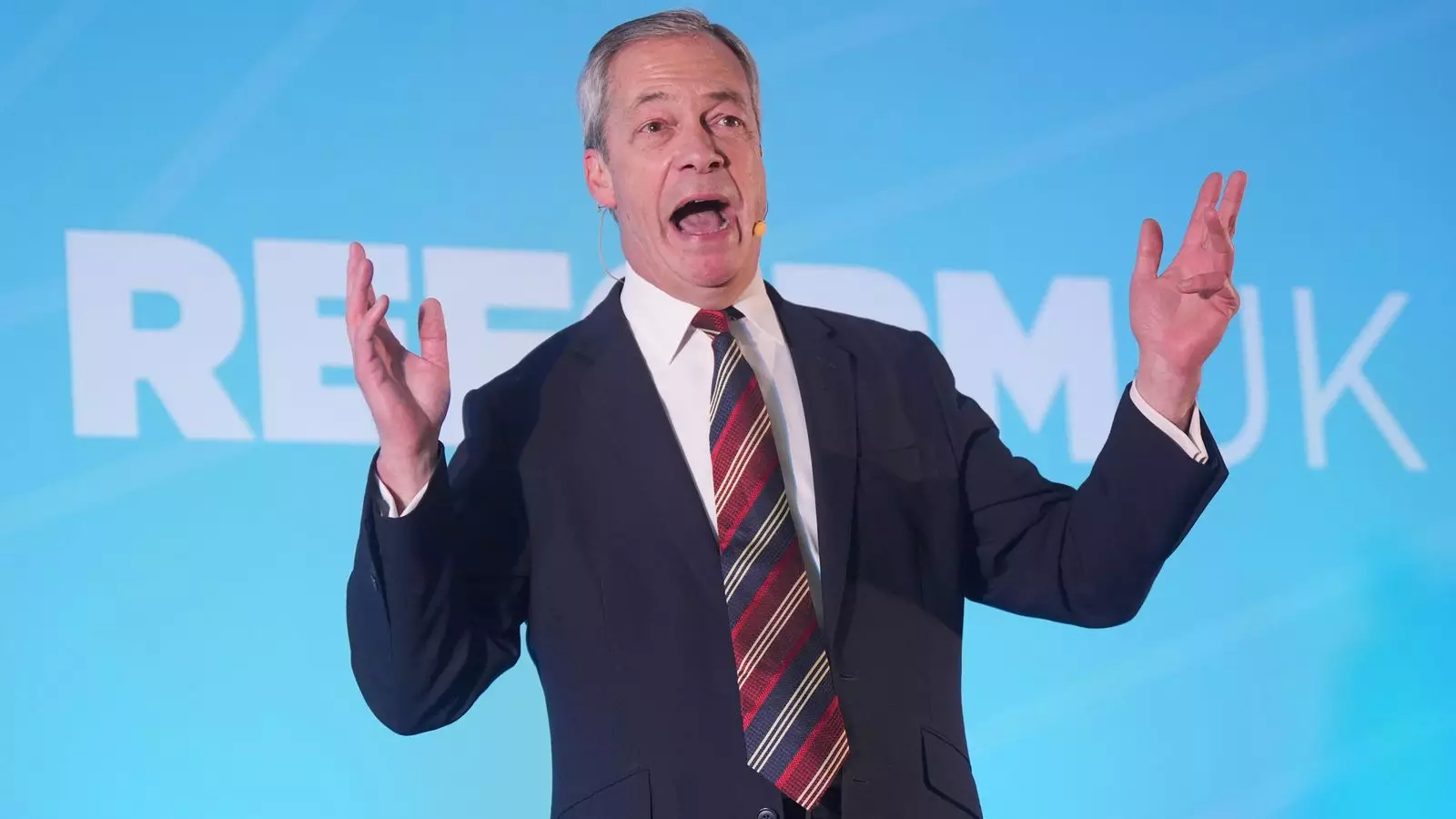In the realm of politics, the dynamics between influential figures can shape narratives and affect party trajectories. One such instance involves Nigel Farage, a notable figure in British politics and the founder of the Reform Party, who recently found himself in a public spat with billionaire entrepreneur Elon Musk. Musk, the owner of the social media platform X, publicly challenged Farage’s capability to lead his party, igniting a firestorm of debate around leadership, influence, and the intricacies of political support.
Following Musk’s provocative statement on January 5, asserting that “the Reform Party needs a new leader,” Farage appeared on Sky News to clarify his position. Although initially stung, he remarked defiantly, “I can’t be pushed or bullied.” Farage’s resilience paints a picture of a leader steadfast in his convictions, openly engaging with criticism yet refusing to retreat in the face of challenges—a trait that some admire while others may criticize as stubbornness.
In the interview with Sky’s Ali Fortescue, Farage maintained that he and Musk are still friends, portraying Musk’s comments as merely reflective of his candid nature. This assertion raises questions about the nature of political friendships in the digital age and whether personal relationships can truly withstand public disagreements, especially in an environment as charged as political discourse. Farage noted that interactions between the two have included supportive exchanges, despite Musk’s harsh words regarding his leadership.
What is significant here is the delicate balance leaders must maintain when dealing with public figures who may have a tremendous influence due to their wealth and platform. Farage’s response to Musk’s criticism reflects a broader theme in politics: the necessity to engage constructively with influential allies while also standing firm against their critiques. It highlights the complex interplay where friendship demands authenticity, yet political ambition requires strategic alignment.
The conversation between Farage and Musk also illuminated stark ideological differences, particularly regarding Tommy Robinson. Musk’s characterization of Robinson as a “political prisoner” clashed sharply with Farage’s stance, who categorically distanced himself from Robinson and the ideologies of far-right extremism. This divergence reveals the internal struggles that political leaders face when navigating the waters of public opinion and ideological purity.
Farage’s insistence that Robinson is unwelcome in the Reform Party underscores a fundamental ideological debate within British politics—one that pits populism against accountability. Farage stated, “If people within Reform think Tommy Robinson should be a member… that disagreement is absolutely fundamental.” His rejection of Robinson’s association speaks to a broader vision for Reform that seeks to attract a wider base while also delineating clear boundaries around acceptable ideologies.
Moreover, Farage’s history with the British National Party (BNP) further underscores his attempt to distance the Reform Party from associations deemed toxic or extremist, a strategy aimed at ensuring the party’s legitimacy in a competitive political landscape.
In addition to the personal dispute with Musk, Farage tackled broader political issues, particularly the Labour government’s devolution plans. He framed these plans as a mechanism for postponing elections and curtailing democracy rather than a genuine effort to enhance local governance. “I thought only dictators cancelled elections,” he claimed, emphasizing his outrage at what he perceives as a manipulation of democratic processes.
This critique resonates in a political climate where public trust in leadership structures is precarious. By positioning himself as an advocate for democratic principles, Farage aligns with a significant portion of the electorate who may feel disenfranchised by decisions taken behind closed doors. His assertive rhetoric regarding the devolution plans serves to solidify his public persona as a defender of democracy, further bolstering his drive to gain traction in upcoming elections.
As Farage faces challenges both from within his party and from external figures like Musk, the trajectory of Reform UK remains precarious yet full of potential. The ongoing dialogues around leadership, ideological boundaries, and democratic integrity will undoubtedly play a crucial role in shaping the party’s future.
While Farage remains confident about Musk’s continuation of support—suggesting potential financial backing—the relationship dynamics will be critical. As Reform UK seeks to solidify its position in the political landscape, the balance between acknowledging influential supporters and adhering to core principles will define not only Farage’s leadership but also the party’s identity moving forward.
Ultimately, this interplay between personality, principle, and public perception underscores the complex ecosystem of modern politics, where leaders must navigate both support and dissent while cultivating a clear and compelling vision for their constituents.

